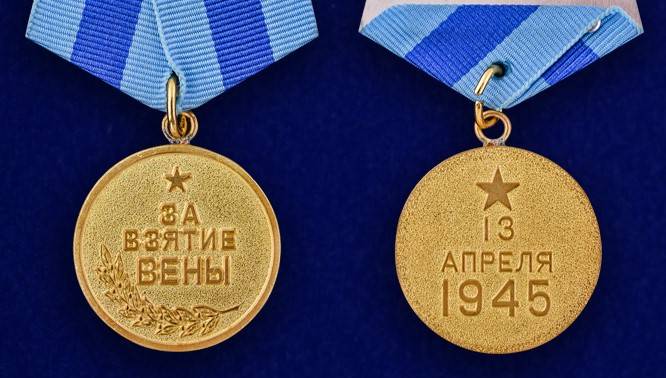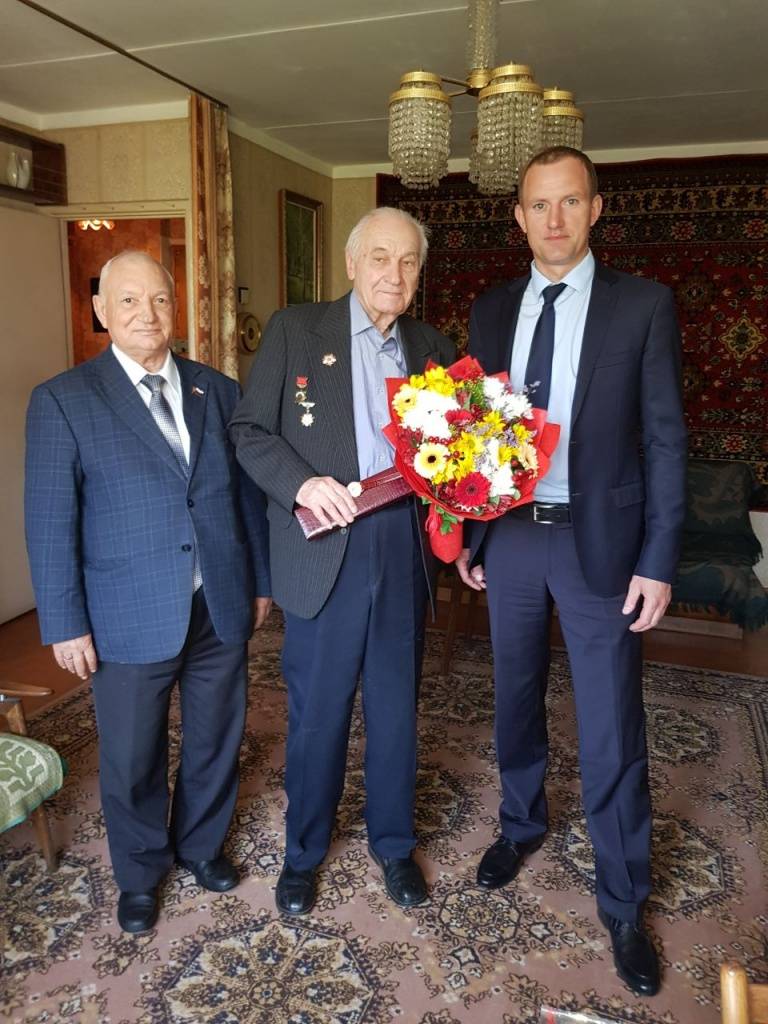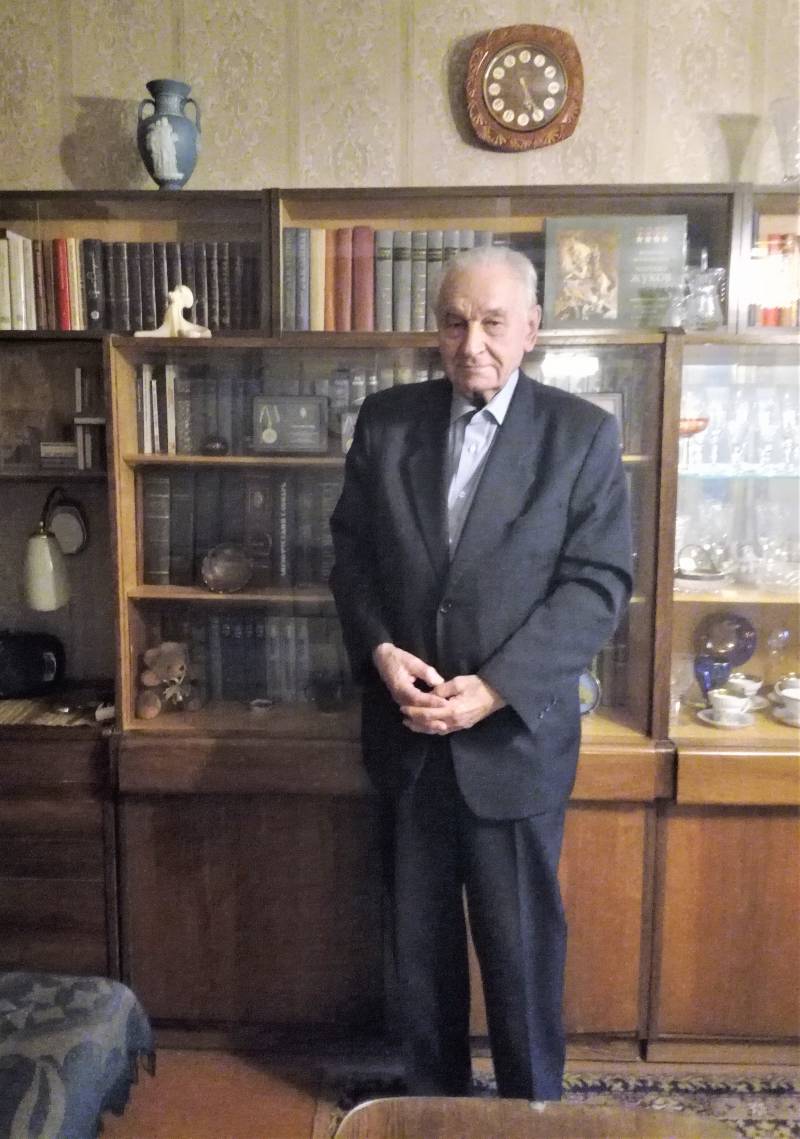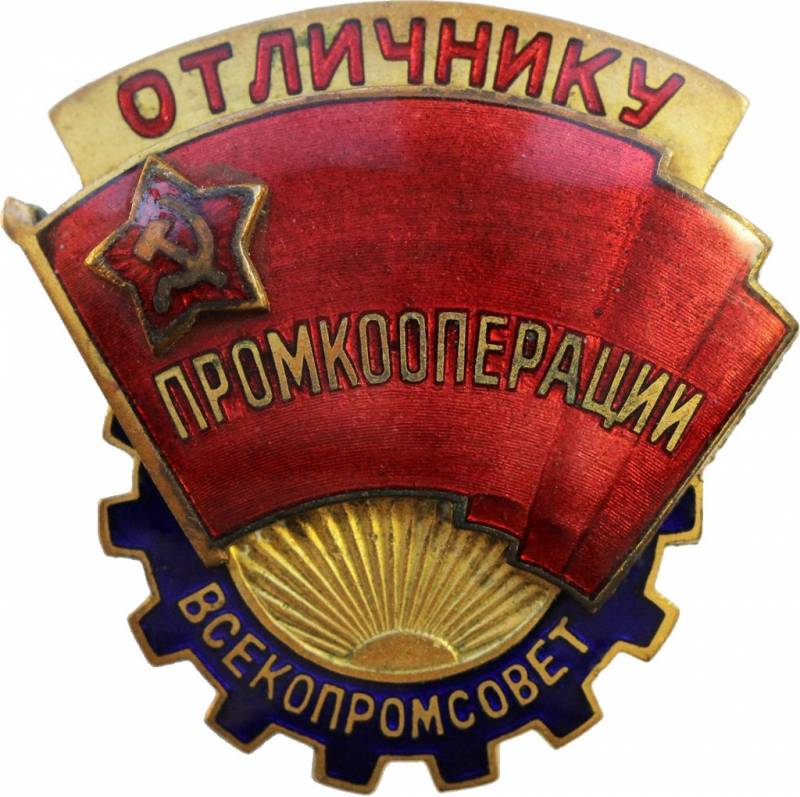Vladimir Sibanov: in Austria we were met with silence, in Czechoslovakia - with red flags

It feels a military bearing
Vladimir Ivanovich Sibanov looks much younger than his 92 years. he, As in the past, he is tall, stately, elegantly dressed. Moreover, without bad habits. It feels a military bearing. Our unhurried, thorough communication lasted more than two hours, and only closer to the end of the conversation did I learn that my interlocutor was a lieutenant colonel of counterintelligence in reserve. Vladimir Ivanovich, no matter how I tried, did not reveal the secrets and subtleties of his work. But we talked about war and politics for a long time ...
- Vladimir Ivanovich, what is remembered first of all in your years?
- Of course, the war. I was not immediately mobilized to the front, but only in March 1943. At first he got into the officer’s Telavi military infantry school, at that time it was relocated from Georgian Telavi to the city of Skopin in the Ryazan Region.
In the summer of 1943, near Moscow, the formation of reserves of the High Command - the airborne troops. So I got to the reserve military units of Stalin. We lived in Ramenskoye, on the outskirts, almost in the forest, we themselves built dugouts, were engaged in military training. There I first parachuted.
- What battles did you have to go through?
- A year later, I took part in the 4th “Stalinist strike”, one of ten, which today, in fact, is rarely remembered. There were, I repeat, ten serious military operations that significantly influenced the course of the war. The 4th strike was aimed at withdrawing Finland from the war. The operation took only 17 days.
I was listed in a sapper-subversive company, and on this site I felt for the first time in the war, seeing real armada of equipment and a lot of fire. From the Finnish side in those days, it was constantly pulled by burning and gunpowder. The Finns did not hold the defense for a long time, because this was not our first blow. My duty was to mine roads, including in the forest.
In the city of Kalinin, we continued to engage in tactical training. In the spring of 1945, we were sent to the West on a military alert. Our landing teams were slowly pulling the second echelon to the main forces of the army. We became guardsmen. The 114th division, which went ahead, participated in the battles. Our division basically cleared the territory, removed stretch marks and mines. We passed through Vienna, there were fleeting fights. So I got the medal "For the capture of Vienna."
What do I remember? Where there were no serious battles, the well-groomed streets and houses were striking, and I also remember women dressed in trousers. I will not forget the attitude of the local population towards the Red Army. Fascist propaganda was everywhere: houses and fences were covered with posters that depicted our army men torturing children and women.
But in our advancing army there was a strict order: for looting or violence - a tribunal. Until the execution. So, when we walked through the Alps, the local population met us, as a rule, in silence. Many cottages were empty, the owners left them in advance. White sheets hung on the houses - the sign “surrender”. But in Czechoslovakia, residents met our army with red flags, because there was very strong anti-fascist resistance.
Don’t think about seconds down ...
- Vladimir Ivanovich, you were no longer a youth in the war. Please tell us about your childhood, your parents.
- My family moved to Moscow when I was five years old. And I was born in 1925 in the city of Kimry, Tver region. Parents - from the village of Mikhailovskoye. Mom graduated from high school with a gold medal, then taught for some time. His father received a good education, and in 1930 he was transferred to Moscow to work as a financial consultant at the VSEKOPROMSOVET - council for industrial cooperation. Sister Rimma, five years older than me, was disabled since childhood, she had tuberculosis.
The family settled in Sokolniki, on the 6th ray clearing. Then there were many cottages built at the beginning of the 20th century. We lived in one of them. There were no amenities: water, electricity, even the foundation. First they heated it with an old tiled stove, then they put the stove on two floors. We were given firewood.
I lived there flesh until my marriage, until 1952. For the children this place was fertile, in the forest we were left to our own devices - we played, played sports ... In the center of the park was a large ice rink. All residents of the dachas on the farm helped each other, and the kids were friends. My sister and I often visited in the summer at the house of my grandmother and grandfather in Lianozov, because dad also moved his parents to Moscow. Then it was a summer residence, was in the forest.
In 1931, his father died after falling under a car. We survived as best we could. Mom began working as a librarian in Historical library and in the end received a high position of storage manager. I helped around the house, I knew how to do everything. I went to school by tram, my sister, who moved on crutches, constantly escorted to study. When I became a student, I felt a little better, although the scholarship was scanty.
- And how did you meet the war?
- In 1941, I was in my 2nd year at the Moscow Power Engineering College with a degree in Electrical Engineer Electrical Engineering. I had to serve including power plants. The war began, by age I was not mobilized. Participated in the city’s air defense: on duty at night, mainly on the roofs. They put out fire bombs, because they could be stuck in the ceilings or chimneys of houses. In the summer I was repairing Tanks at the factory "Wrestler".
I do not believe in fate ...
- Perhaps your post-war life was already completely different than before the war or at the front?
- I served seven years. The "cold war" began ... He was demobilized in 1950 with the rank of guard of the senior sergeant, as the officer school did not even have time to finish. I came to the draft board to register. After a thorough discussion, I was invited to work in the state security organs.
But before that I decided to transfer to study at the shipbuilding college. I was stunned by such an offer, but did not refuse. He worked at the machine-tool plant for six months, all this time they checked me. On August 30, I was sent to study at a school where they trained employees of the Main Directorate for the Protection of Critical Facilities, as well as members of the government, the Politburo, and personally Stalin. After the death of Stalin, this administration was dissolved, and the FSO was created on its basis.
I served in counterintelligence for 25 years. He became the head of the unit with the rank of lieutenant colonel. What I did, I will not say. If you are interested, read special literature. But in general, my task was to develop operational affairs.

He worked in the Central Office, which means he performed particularly important tasks in identifying foreign agents as well as dissidents. Preventive work was going on with this contingent, we talked. It is not true that for political beliefs people were massively imprisoned. I grew up under the Soviet regime, buried it, but not in my heart. I was a living participant in the emergence of power.
- Please tell us about your personal life, about your family.
- I got married when there was a plan to send me abroad. I found a wife among friends of my relatives. She worked in aviation industry. Our son died when we were 47 years old. Wife died a year ago, she had senile dementia. In my life, everything happened late. Married when I was 27 years old ...
“Do you believe in fate, in God?”
- I am a convinced atheist. Man builds his life himself. It is important to make the right decision. Some circumstances could not be changed. After a while, sometimes I realized that I could act differently. I was not mistaken with marriage. We lived together for almost 65 years. My wife was a housekeeper. I have long forgotten how to do housework, but now I have to do it, and the state and the organization of veterans are helping me. The Moscow government does not leave me without attention. The CSO provided me with two people to help with the housework.
- What are you doing now?
“Of course, I'm a little sad.” It saves me that I am a member of the Council of Veterans. I attend various events, I am friends with the district administration. Under the program "Moscow Longevity" I learned computer literacy. Social and civic activity is an important component of the life of any person.


Information